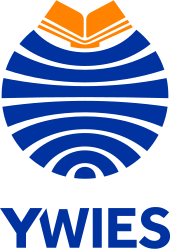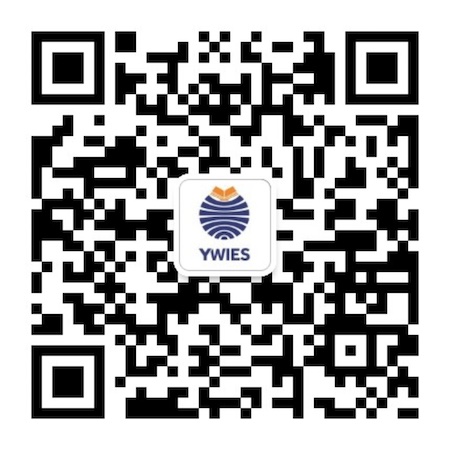Go Back
News
Wechat News
2021 YWIES PBL – Mission to Mars
Wechat News
15 Sep, 2021
10 : 00
In the 1960s, the United States and the Soviet Union successively began their exploration plans on Mars; China's Tianwen 1 Mars probe streaked down through the Martian sky on 15 May 2021, becoming the country's first probe to land on a planet other than Earth. The lander, carrying a Mars rover, touched down at its pre-selected landing area in the southern part of Utopia Planitia, a vast plain on the northern hemisphere of Mars.
All the time, countries and scientific research institutions around the world are constantly trying to land on Mars, open up Martian space, and then realise the long-cherished wish of mankind emigrating to Mars.
At the end of the semester, all grades of our school, also with the theme of ‘Mission to Mars’, took their PBL courses for a week. This is a special ‘final exam’, in which
the students acted as leaders, and jointly explored the infinite possibilities of this ‘Mission to Mars’, applying their own thinking, inquiry and analysing skills, cooperation ability, presentation skills, and creativity.
Let's look at the wonderful things these ‘Mars Explorers’ have presented.
PBL Introduction
Project-based learning (PBL) is an educational method that engages students in a real-world problem-solving process. Used extensively in medical education since the 1970s, PBL is an instructional approach that teaches students ‘what to do when you don't know what to do’ by collaboratively solving authentic open-ended problems.
Primary PBL Programme
Mr Niall Regan, Head of Upper Primary:
Teachers particularly focus on group work strategies during PBL. The point of project-based learning is to give the child more ownership over their learning and help them discover what they want to achieve.
The teacher acts more as a guide for the child instead of a director. Teachers best help students by giving clear expectations, and assigning important roles to students in groups. Teachers also make sure that children are participating fully in their tasks and are engaged. We also follow up on their activities and ask questions to see if children can develop their thinking further.
From what I can see we have a lot of different outcomes in different groups. Some groups have decided to represent their learning by making videos. These videos with English and Chinese contents, were the results of research using scientific websites. They include mathematic equations and have elements of drama and art too. We can see the influences of drama and art in the backgrounds and the scripts in their videos.
Some groups have chosen to make PowerPoint presentations and others have created models. I have seen some groups build robots that were inspired by the Chinese and American robots on Mars. The greatest thing about PBL is the variety of outcomes that the children create over the week.
Secondary PBL Progarmme
Mr Chris Hurley, Director of Teaching and Learning:
To celebrate the recent landing of the Chinese rover on Mars, we want our students in primary and secondary to explore this theme.
We want them to look at Mars, the planet and space exploration and space communication, all the way through the rockets. This will give students a whole range of real life and current experiences to help them learn about the world around them.
PBL, or project-based learning, is a learning approach that brings together all subject areas, supporting students to integrate Maths, Science, Engineering, English and Social Studies into one area of study or exploration.
With our Mars theme, students worked on rocket design and understood the engineering and mathematics concepts behind it.
They investigated space and space exploration by looking at science behind it, as well as, producing videos, media releases and hence developing their English language skills along the way.
So PBL for us, is a great way of helping the students to, not only explore real-life issues, but also to apply and adapt all the learning that they’ve done in subject areas into one unique experience.
We also brought a ‘science and technology feast’ to students and staff to raise students' awareness of the science and technology frontiers such as the new energy field, and environmental protection. Tesla Shanghai Super Factory had new energy vehicles driven into our campus, and shared meaningful experiences with the teachers and students on high-tech fields such as new energy vehicles, intelligent manufacturing, and interstellar exploration.
PBL in YWIES – Learning Communities
Yew Wah believes that Learning Communities best enable students and teachers to creatively and holistically explore different fields of knowledge, fostering individual and collaborative learning skills critical for the 21st century. In our school, we define the learning community as a place where students and teachers learn, discover, and create knowledge. All participants, including students, teachers, parents, and other school community members, are like-minded active learners and are jointly responsible for achieving the learning goals. In learning communities, all our participants can create opportunities for children's personalised learning and teamwork. Our children were allowed interdisciplinary cooperation to develop their language ability, problem-solving skills, and cross-cultural understanding in the learning activities. The learning experience in the Learning Communities also takes into account the different needs of each child. We build a learning environment that cultivates students' thinking, inquiry, cooperation, expression, creativity, analysis, evaluation, and independent learning through the challenges during the learning process. Finally, as it was said in an interview by our co-principals:
We hope that we can cultivate and train students to acquire the core competencies needed for future success through the model of Learning Communities. We want our students to grow in all aspects like critical thinking, problem-solving skills, cross-cultural cooperation, leadership by example, flexibility, taking the initiative, practical oral and written communication skills, evaluation, analysing skills, curiosity, and imagination.
















